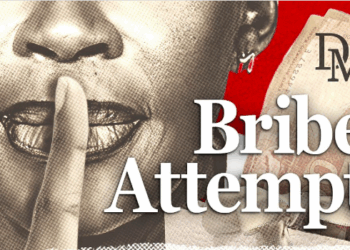When you add a smiley face to the end of a message, you may be saying more than you realise.
Emoticons, faces formed from punctuation symbols such as :-), and emojis, picture symbols such as 😀, are now common features of the way we communicate using phone and internet messaging services and social media. They can help your recipient understand a potentially ambiguous message, reinforce the emotion in what you’re saying, or communicate your feelings rapidly with a single character. But not everyone uses them – or interprets them – in the same way.
So we set out to discover how the use of these symbols influences the way others perceive us. Do different types of people use emoticons for a particular purpose, such as managing their image, for example? If so, what psychological factors are associated with these actions? To do this, we asked a group of students to complete questionnaires about themselves and then allow us to study their textual communication in a staged conversation.
The questions covered the students’ views on their personalities, self-esteem, social anxiety and self-presentation concerns (how worried they were about how other people perceived them). We also asked about the amount of emoticons they used and why they used them for text messages, emails and Facebook. We then took screenshots of their Facebook profiles and recorded a 10-minute conversation they had with another, unknown student via Facebook messenger.
We found that those people who rated themselves as agreeable (pleasant, likeable) were more likely to use emoticons on social media sites. We also found that those who were less worried about how other people perceived them were more likely to use sad emoticons.
Mirror to the real world
It seems that different people use emoticons differently depending on their personalities. People who are agreeable tend to use social and emotional cues in the real world to communicate that to other people, such as smiling and being encouraging. And to some degree that is mirrored in the virtual world through the use of smiling emoticons.
This is particularly the case on social networking sites such as Facebook, where messages may have bigger, wider audiences and where the interactions are richer and more complex than simple, one-to-one plain text messages. We can speculate that people who see themselves as more agreeable are stimulated in these virtual environments and make more of an attempt to convey that part of their personality through emoticons.
At the same time, if you’re less bothered about how people perceive you, you may be more comfortable displaying all your emotions, including sadness. And so a sad face on a message may be an indication that you’re more concerned with expressing yourself than with how others may judge you.

Some of our other findings also show how we’re more likely to use emoticons in some kinds of virtual communication than others. Perhaps understandably, our participants deemed emoticons inappropriate for more professional contexts, which probably explains why they said they used emoticons less in email than in text messages or social media.
Regardless of this, our participants reported that emoticons are a useful way of expressing themselves and reducing the ambiguity of messages. This suggests emoticons may be particularly important for individuals who find it difficult to express or interpret emotion or social intent using just text and the cues it can provide.
This has prompted us to start planning further research into whether emoticons could be beneficial for those on the autism spectrum. These individuals can struggle with social interaction and picking up emotional cues, so the clarity that emoticons bring to potentially ambiguous messages may help them to communicate.
Judging emoticons
For the final part of our research, we asked another group of people to look at the conversations and profiles we had recorded, in order to study how other people judge us based on our use of emoticons. We found that the more smiley emoticons a person had used, the more they were seen as agreeable, conscientious and open to new experiences.
But this didn’t always correspond to how people saw themselves. The emoticon users and those being asked to judge them were most likely to agree on how extroverted and open to new experiences they were. This suggests that while smiling emoticons may make people seem more agreeable and conscientious, that may not match up with their own real-world personalities.
All of this hints at how much the way we use emoticons and emojis appears to shape other people’s impressions of us – and the fact that we should be aware of how we use them online. Although we recorded examples of observers making positive judgements about other people’s emoticon usage, other behaviour could lead to less favourable impressions.
Linda Kaye, Senior Lecturer in Psychology, Edge Hill University; Helen Wall, Lecturer in Psychology, Edge Hill University, and Stephanie Malone, Postdoctoral research fellow, School of Psychology, Australian Catholic University
This article was originally published on The Conversation. Read the original article.
Image: Shutterstock














